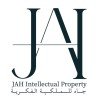Iraq adopts Nice Classification 11th edition
23 April 2025

The Iraqi Trademarks Office (TMO) has adopted the 11th Edition of the Nice Classification, effective January 2025, marking a significant shift from its national sub-class system. This move aligns Iraq with international trademark classification standards, offering a more structured and globally harmonized approach to trademark registration. Historically, the TMO’s sub-class system diverged from the internationally updated Nice Classification. This also reflects Iraq’s commitment to global best practices in intellectual property.
The adoption brings procedural and definitional changes to Iraqi trademark registration, impacting all stages. New applications must adhere to the 11th Edition. For pending applications, owners can either defer reclassification until after the opposition period or immediately reclassify. The TMO also mandates a pre-filing compulsory search, treated as a substantive examination with a 30-day filing deadline post-search. Applicants must now navigate the complexities of the 11th Edition for accurate classification, and existing trademark owners will need to reclassify their registrations. This alignment with international standards offers long-term benefits but requires effective implementation and clear guidance for a smooth transition.

Mohcine Fattah I IP senior director @ JAH Intellectual Property, Doha
“With the adoption of the 11th Edition in January 2025, all new trademark applications must now classify their goods and services according to this international standard right from the outset,” said Mohcine Fattah, an IP senior director at JAH Intellectual Property in Doha. “The mandatory pre-filing search, which is treated as a formal and substantive examination, will therefore be conducted based on the applicant’s classification under the pre-defined 11th Edition. This means international applicants need to ensure their list of goods and services aligns accurately with the said 11th Edition from the very beginning, even before the formal application is filed, and the mandatory search is conducted. Meanwhile, the search results, communicated in a binary ‘YES’ or ‘NO’ without detailed reports, will dictate whether the applicant proceeds within a strict 30-day deadline. If the search is unfavourable, the applicant might need to reconsider their mark or the scope of goods and services, potentially incurring additional costs and time. A positive search result can give the applicant more confidence in proceeding with their application. Furthermore, by aligning with an internationally recognized classification system from the pre-filing stage, it could potentially streamline the subsequent examination process and reduce the likelihood of classification-related objections later on.”
He added that owners of pending Iraqi trademark applications are presented with two reclassification options: deferred reclassification and immediate reclassification. Each option has strategic implications.
Deferred reclassification allows the registration to proceed under the old sub-class system initially, with a mandatory reclassification to the 11th Edition occurring after the opposition period but before the issuance of the registration certificate. A key strategic consideration for choosing this option might be to expedite the initial registration process and lower costs, especially for applications with many goods and services where immediate reclassification could be expensive.
Immediate reclassification, on the other hand, involves reclassifying the goods and services according to the 11th Edition at the current stage of the application. The strategic advantage here is achieving immediate alignment with international classification standards, which can simplify future international trademark-related activities. However, this option requires an immediate investment of effort by applicants to accurately reclassify the goods and services, and the Iraqi Trademarks Office retains the authority to approve or adjust these selections.
“Owners must weigh the benefit of immediate international alignment against the potential administrative burden and the risk of the TMO adjusting their classification choices. The number and complexity of the goods and services in the pending application will likely be a significant factor in this strategic decision,” he said.
There are, of course, challenges. “International trademark owners face several practical challenges when reclassifying their existing Iraqi trademark registrations under the 11th Edition of the Nice Classification. This transition, while aiming for international harmonization, can present complexities that require careful attention and strategic planning,” said Fattah. “One significant challenge lies in accurately mapping the goods and services listed in their old Iraqi registrations upon attending to any post-registration action, which was based on the old-dated sub-class system, to the corresponding classes and potentially more specific terms within the 11th Edition. The one-to-one correspondence might not always be straightforward. Some goods or services that were grouped under a single sub-class in the old system might now fall under different classes or require more descriptions under the Nice Classification. This necessitates a thorough understanding of both the old Iraqi classification and the nuances of the 11th Edition to ensure the scope of protection is maintained or appropriately adjusted. Errors in reclassification could inadvertently narrow or broaden the protection initially granted.”
He continued: “Another practical hurdle is the potential for increased costs and administrative burdens. The timing and procedural aspects of the reclassification also present practical challenges. Finally, potential disputes or objections arising from the reclassification cannot be entirely ruled out. While the aim is harmonization, the reclassification process might inadvertently lead to overlaps or conflicts with newly filed applications under the 11th Edition or even with existing registrations that have already been reclassified. International owners need to be prepared to address any such issues that may arise during or after the reclassification process.”
- Excel V. Dyquiangco






